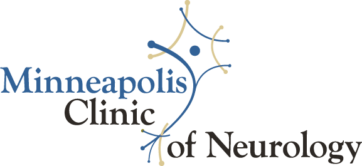What is an Electroencephalogram (EEG)?
An EEG is a recording of the electrical activity of the brain. Fluctuating electrical impulses produced by the brain are recorded and analyzed to evaluate a variety of neurological conditions.
An EEG is an important test in the evaluation of seizure disorders, metabolic disorders (liver or kidney dysfunction), nervous system disorders (encephalitis or abscess), degenerative disorders (Alzheimer’s or Parkinson’s Disease), head injuries, headaches, brain tumors, brain death, cerebral palsy, strokes and many others.
What happens during an EEG test?
Patients 18 years and older will be escorted to the testing area alone. Companions are welcome, but should plan to remain in the waiting room throughout the procedure.
Small metal discs called electrodes are attached to 22 predetermined locations on your scalp with an adhesive. Other methods of electrode application include an electrocap, special conductive paste used with small disc electrodes, or, very rarely, needle electrodes that are placed under the skin. These electrodes detect and transmit electrical activity of your brain through wires to the electroencephalograph machine, where the signals are amplified and recorded. In order to activate specific portions of your brain, you may be asked to hyperventilate (breathe through your mouth deeper and faster than normal) or look at a strobe light, flashing at different speeds, for a brief period of time. Most people find that the EEG test is a painless procedure. Please follow instructions during all phases of the EEG to help ensure an accurate test. Your cooperation is essential for accurate test results. A technician will be with you throughout the procedure. The test usually takes about 1 to 1 1/2 hours.
Following the test, a technician will remove the electrodes and adhesive from your scalp. You may want to wash your hair thoroughly, though, when you get home. Your diet and activities should not be affected by the test.
The results of the EEG will be interpreted by one of our neurologists, and a report will be sent to your healthcare provider that ordered the procedure. The provider/doctor that ordered your test will provide your results to you. If the EEG test was ordered by a Minneapolis Clinic of Neurology provider, your results will be discussed with you at your next appointment.
- Sleep Studies: Most EEG tests record brain waves while you are awake and drowsy. At times, however, it is helpful for the neurologist to analyze brain activity that occurs during sleep. To encourage sleep during the EEG, you may be asked to alter your sleep schedule prior to the test.
- Ambulatory EEG: If a standard EEG does not verify seizure activity, an ambulatory, or extended, EEG may be ordered, which records brain activity for an extended period of time to more thoroughly assess a seizure diagnosis. During an ambulatory EEG, electrodes are applied to your scalp with glue and are connected to a unit worn on a belt while you go about your usual activity. You will be asked to maintain a diary of activities for the duration of the test. Ambulatory EEG tests are conducted at our Golden Valley offices.
- Video EEG: A video EEG is used at times to assist in the diagnosis of seizure activity and/or the affected brain location. During the EEG test, you are videotaped so that the neurologist can correlate your EEG tracing with your taped activities and behaviors. A video EEG test can take anywhere from a few to eight hours and are performed at our Golden Valley office.
How should I prepare for an EEG?
Wash and dry your hair and scalp before the test so that they are clean and oil-free. Do not use conditioner or hair spray. Electrodes will need to be placed at specific locations on your scalp so we are not able to work around a hair weave. Eat a regular meal or snack two hours before your EEG to help stabilize blood sugar, unless you’ve been instructed not to eat by your physician. If you take any medications, please ask your physician if you should take them as usual.
If your physician has ordered a sleep test, you likely be asked to adjust your sleeping schedule. Please follow the recommended adjustments to your sleeping schedule so that you find it easier to fall asleep during the test.
If you will be having a video EEG test, you will need to bring someone who can stay with you for the duration of the test. You may wish to bring VHS movies or a personal DVD player, books or other items to pass your time, as well as a bag lunch/beverage.
Locations/Contact Information
EEG Department Phone: (763) 287-2300, option 2
To schedule an appointment for an EEG at any of our primary offices in the Twin Cities, please contact our central scheduling at (763) 287-2300, select option 2 or send a referral and our Patient Care Coordinators will call you. We do need a physician referral prior to scheduling. EEG referrals can be faxed to (763) 302-4348 or emailed to EEG.EMG@Mpls-Clinic.com.
Minneapolis Clinic of Neurology – Golden Valley/Main Office
Minneapolis Clinic of Neurology – Burnsville Office
Minneapolis Clinic of Neurology – Coon Rapids Office
Minneapolis Clinic of Neurology – Edina Office
Minneapolis Clinic of Neurology – Maple Grove Office
The Minneapolis Clinic of Neurology provides inpatient EEG neurodiagnostic testing at Maple Grove Hospital and Regency Hospital. In addition, we provide services at many of the outreach locations that we visit.
